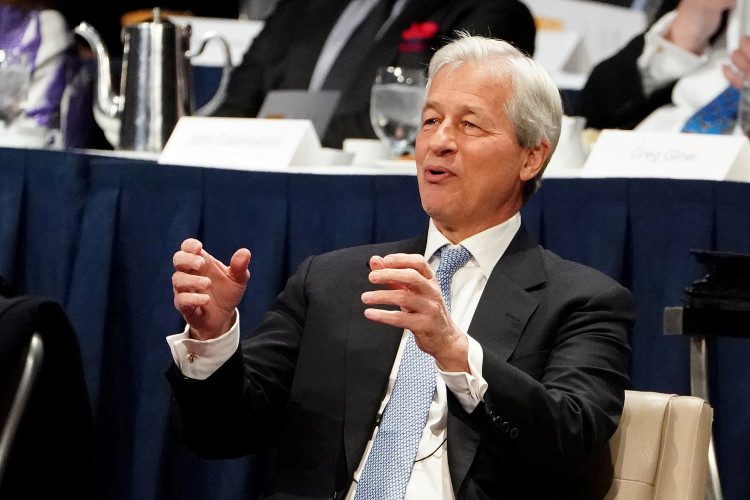Jamie Dimon, CEO of JPMorgan Chase, delivered a stark warning to European policymakers and financial markets on Thursday, declaring that Europe is "losing" its competitive edge to both the United States and China while investors are increasingly ignoring economic red flags tied to trade, inflation, and monetary policy.
"You're losing," Dimon said during remarks at an event organized by Ireland's foreign ministry. "Europe has gone from 90% [of] US GDP to 65% over 10 or 15 years. That's not good." Dimon pointed to a growing gap in corporate scale and innovation as European firms struggle to compete with global giants based in the U.S. and China.
The JPMorgan chief, who has led the bank since 2006, has repeatedly criticized Europe's structural rigidities, warning that the continent's economic model is unsustainable without aggressive reforms. "The GDP per person has dropped from something like 70% of America to 50%. That's not sustainable," he told the Financial Times in April.
Dimon's remarks follow a 400-page report authored by former European Central Bank president Mario Draghi, which found that the EU must invest between €750 billion and €800 billion annually to remain globally competitive. The report described the bloc's weakening tech sector and the energy shock caused by Russia's invasion of Ukraine as "existential" threats to European economic sovereignty.
Dimon has also not shied away from criticizing Brexit. In his 2021 annual letter to shareholders, he said that the UK's exit from the EU "cannot possibly be a positive for the UK's GDP" in the short term.
Beyond Europe, Dimon expressed alarm Thursday over investor behavior in the U.S., where markets have rallied to near-record highs despite persistent macroeconomic headwinds. "Markets are a little desensitized," Dimon said, cautioning that investors are underpricing the risk of rate hikes driven by tariff-induced inflation, tightening immigration policy, and a ballooning federal deficit.
Bob Elliott, CIO of Unlimited Funds, echoed Dimon's concerns, telling Axios, "Betting on the TACO trade today at current price levels is front-running the pain that has to happen in order for it to play out." The so-called "TACO trade" refers to sectors expected to benefit from tariffs and reshoring initiatives: Technology, Aerospace, Commodities, and Oil.
Elliott argued that markets are making a premature leap to a "post-tariff" reality while skipping the painful middle stage, in which higher import costs and retaliatory measures could stifle growth. Tariffs are “a further negative shock from federal government policy into an already weakening economy," he said, pointing to slowing housing activity and construction data as early signs of strain.
Some analysts remain more optimistic. Mary Ann Bartels, chief investment strategist at Sanctuary Wealth, believes the current bull market could run through 2030. While she expects some volatility from the tariff environment this fall, she downplayed fears of a broader derailment.
Still, Dimon warned that markets are overlooking a key macroeconomic inflection point. "Eventually, asset markets catch up," Elliott said. "Reality will eventually get priced in, whether that's a bullish or bearish backdrop."




